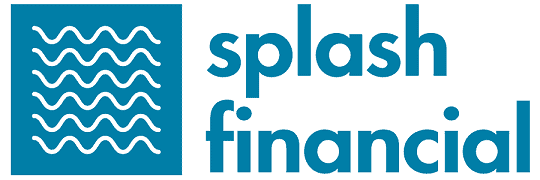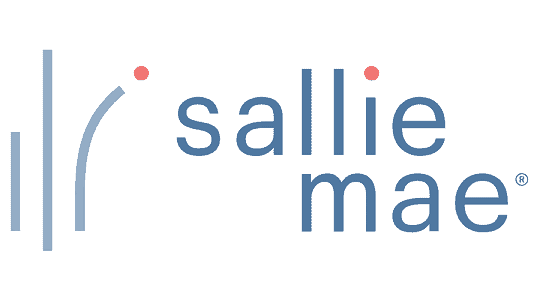Top 10 Best Student Loans in 2024

If you want to go to college, you’ll almost certainly need to take out student loans to pay for it. According to the College Board, the average cost of tuition and fees at a public university for an in-state student in 2021 will be $10,560. For a private school, the price rose to $37,650. Federal aid may not be sufficient to cover the total cost of attendance. In that case, taking out private student loans can help bridge the gap.
But which lenders provide the lowest rates and the most comprehensive benefits? We’ve compiled a list of the best private student loan lenders on the market today to assist you in finding the best option for you.
What is the Process of Getting a Student Loan?
To pay for college, students take out student loans from the government or a private lender. After graduation, the loan must be repaid in full, including interest. Tuition, room and board, books, and other school-related expenses can usually be covered with the loan. Scholarships and grants, on the other hand, do not have to be repaid, while student loans do.
Fill out your (and, if applicable, your parent’s) financial information to apply for a student loan online. The requirements for student loans vary depending on the type of loan you receive, but they may include your FICO score and your income. To cover your entire tuition and all associated expenses, you’ll probably need multiple student loans. A financial aid counsellor from your high school or future college should be able to assist you.
What are some Options for Student Loans?
There are some alternatives if you decide that the student loan is not for you or if you wish to find out what other options you have:
1 Merit-based scholarship
2 College parents pay
3 Support for work-study
4 Athletic scholarship
5 Savings or a legacy
6 Grants
How to select the best student loans?
Many student loans can be chosen from federal and private institutions. During our student loans review, we selected the best student loans for their interest rates, type of loans, co-applications, loan consolidation options and the entire application process.
1. RISLA
When looking for an undergraduate student loan, it’s critical to consider interest rates, loan terms, and lender perks that can enhance your borrower experience. With these considerations in mind, the Rhode Island Student Loan Authority (RISLA) emerges as the best overall lender.
A RISLA loan, despite its name, is available to residents of any state. Applicants who live, work, or attend college in Rhode Island, on the other hand, may be able to obtain a lower interest rate than other borrowers.
RISLA assists families in locating financial aid, such as federal loans, grants, and scholarships. It also has programmes that reward students for completing internships, thereby preparing them for careers after graduation.
2. Credible
It is clever to compare rates from different lender before applying for a student loan to ensure the best interest rate and loan terms are achieved. You can use a student loan marketplace to speed things up rather than do it on your own, which can be frustrative and time consuming.
Fill out a simple form with Credible and get quotes within minutes from several student loan lenders. Obtaining a quote has no effect on your credit, and multiple refund options can be viewed. You and your co-owner (if applicable) can fill out the loan application online once you find a loan that works for you and you.
It is totally free to use Credible. If you apply for a loan from a lender on its market, Credible will be subject to a referral fee. Not all private student loan providers are available, but a number of top lenders, such as Ascent, Citizens Bank, College Ave and Sallie Mae, are also available in Credible.
3. College Ave
You want the best for your child as a parent. And that could include taking out a parent student loan to help them pay for their education. College Ave has 11 repayment terms for parent student loans, ranging from 5 to 15 years. Because of this flexibility, you can select the loan term that works best for your financial situation.
Parents can borrow between $1,000 and the total COA from College Ave. As an added bonus, the lender will deliver up to $2,500 of the loan directly to you, allowing you to manage the purchase of books, dorm supplies, and a new computer for your student.
The lender also offers low interest rates, with variable rates starting at 0.99 percent and fixed rates starting at 2.99 percent (lowest rates include an autopay discount).
4. Splash Financial
Private student loan consolidation, also referred to as student loan refinancing, is a smart way to lower your interest rate and save money over the life of your loan. Our choice for best student loan refinancing company is Splash Financial.
A refinance loan of $5,000 is the minimum amount required. There is no maximum loan amount; it will be determined by the lending partner who refinances your loans as well as other factors in your loan application. You must have a 4-year degree from a Title IV accredited institution or an associate degree in an eligible field in order to refinance through Splash Financial.
5. Funding U
As a college student with no established credit history or income, you may find it difficult to qualify for a private student loan on your own. Finding a lender who will approve your loan application if you do not have a parent or relative to act as a cosigner can be difficult. Funding U may be the best option for those who do not have a cosigner.
Funding U allows undergraduate students of all grade levels to qualify for a loan, unlike some other lenders who only offer non-cosigned loans to college juniors and seniors. You must be a U.S. citizen or permanent resident over the age of 18 and enrolled in a 4-year degree programme at an eligible 4-year college to be eligible. Per year, you can borrow between $3,000 and $15,000. Your loan eligibility is determined by your GPA (minimum varies by grade level), projected earnings, total debt, historical data from your school, and other factors.
For the 2021 school year, the fixed interest rate on undergraduate student loans ranges from 7.99 percent to 12.99 percent, with a 0.5 percent autopay discount. You can make either $20 minimum payments or interest-only payments each month for up to 51 months while in school. Six months after graduation, loan repayment (principal plus interest) begins.
6. MPOWER Financing
Unfortunately, international students frequently struggle to find private student loans to pay for school, especially if they do not have a U.S. citizen cosigner. MPOWER Financing is the best lender for those students.
MPOWER Financing provides undergraduate and graduate student loans to international students, as well as US citizens, permanent residents, and Deferred Action for Childhood Arrivals (DACA) students attending 350 accredited colleges and universities in the United States and Canada.
International undergraduate students can borrow between $2,001 and $25,000, with a lifetime borrowing limit of $50,000. The undergraduate APR is 14.98 percent (12.94 percent for graduate students), but you can qualify for rate discounts of up to 1.5 percent, which include.
Both graduate and undergraduate loans have a 10-year repayment term and require interest-only payments while in school and during your 6-month grace period after graduation.
7. Ascent
Ascent provides both co-signed and non-co-signed student loans, giving borrowers without co-signers more options for college funding. We graded the company based on its co-signed credit-based undergraduate student loan.
Ascent stands out among private lenders for its variety of payment reduction and postponement options. Borrowers can select a graduated repayment plan, which begins with a lower monthly payment and gradually increases over time. This can be beneficial for recent graduates who will most likely earn more money as they advance in their careers.
Borrowers can also pause payments for one to three months at a time, up to a total of 24 months, if they are experiencing temporary financial hardship. Using this forbearance, however, means you will repay the loan over a longer period of time. The vast majority of private student loans continue to accrue interest while in forbearance.
8. Discover
Discover doesn’t charge late fees on private student loans, and it gives borrowers an interest rate break if they pay the interest on the loan as it accrues while they’re in school. It also provides a number of unique payment deferment, forbearance, and hardship options.
However, there is no co-signer release and only one loan term: 15 years. Know that you can pay off your student loan early without incurring penalties, and that if you have the financial means to do so, paying off a student loan in less than 15 years could save you a lot of money in interest.
9. INvestEd
Indiana residents and students can apply for private student loans through INvestEd. You can borrow $1,001 up to 100% of your cost of attendance (minus any other financial aid you’ve received) through INvestEd, with terms ranging from five to fifteen years. If you graduate within six years, you may also be eligible for a 2% principal reduction.
10. Sallie Mae
Sallie Mae provides a variety of private student loans with no fees to students and parents, as well as medical, dental residency, and bar study loans. You can borrow up to 100% of your school-certified cost of attendance (minus any other financial aid you’ve received). Furthermore, borrowers who have a cosigner can apply for cosigner release after just 12 months of on-time payments.











